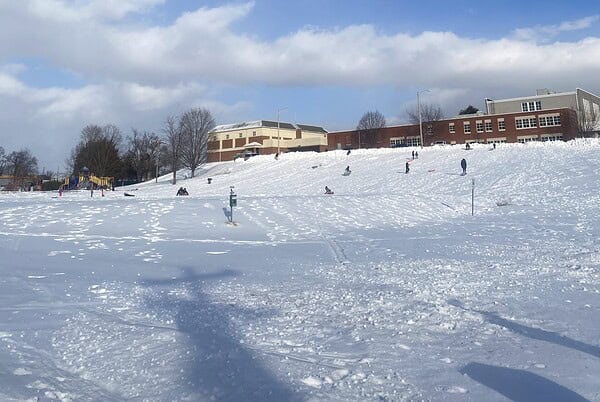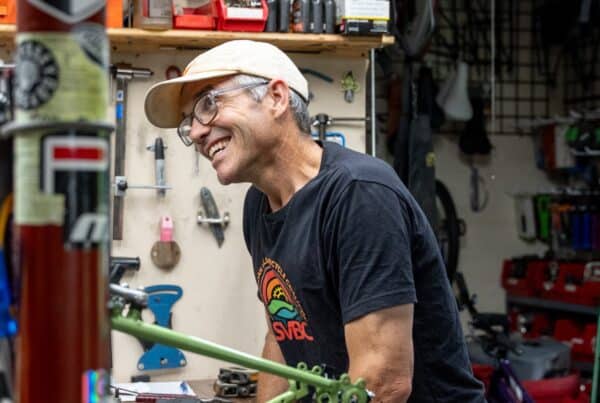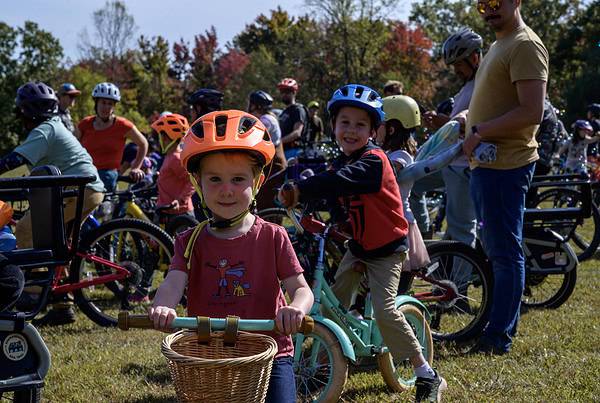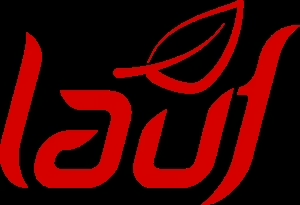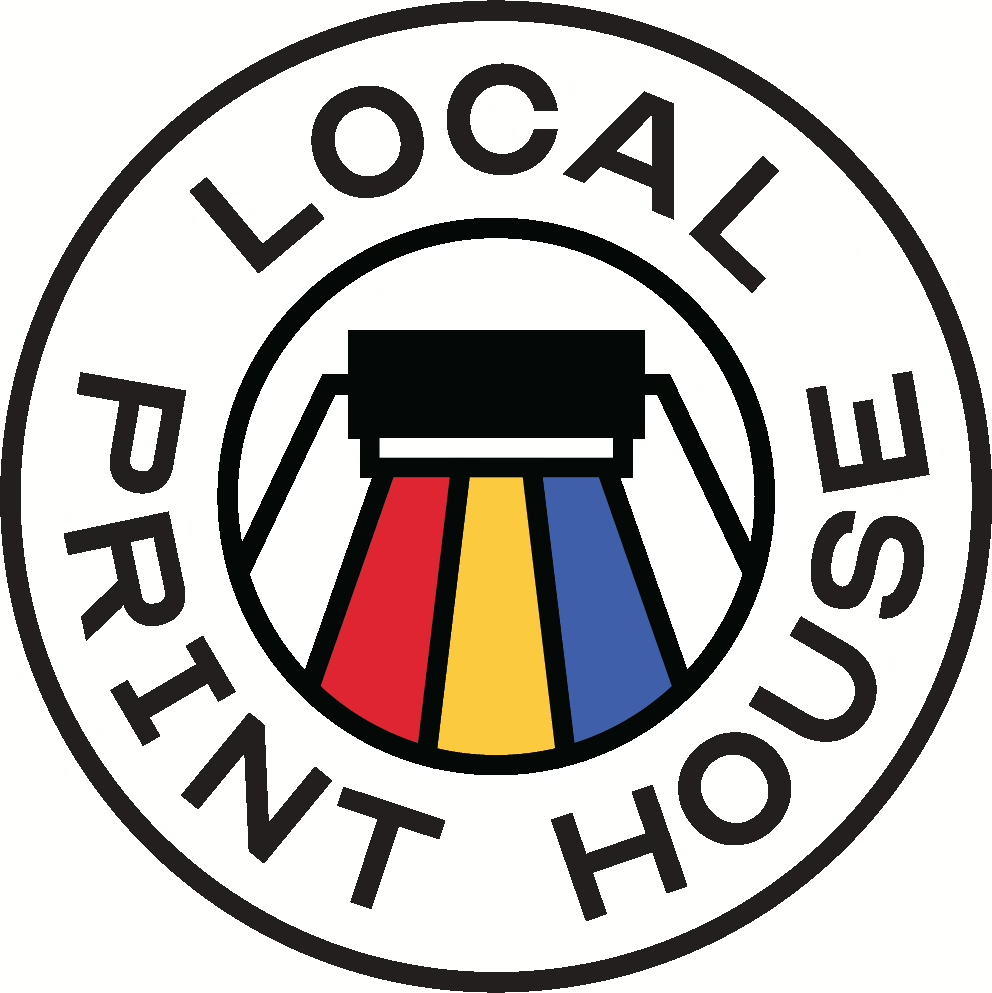*This blog post was written by Thomas Culligan, Coalition member and avid supporter of our public lands. We welcome our community to offer guest contributions to amplify the collective voices that comprise the Coalition.
My name is Thomas Culligan, and I live in Staunton, VA. To me, public land is the most American ideal that we have. Anyone, anywhere, at any time can access their public lands. You can ride, run, fish, hike, hunt, camp, and more on public lands. You can go to these lands and have adventures for little to no money. To me, public lands are the definition of freedom. Sadly, these lands and that freedom to adventure have come under direct fire, and a few people and states are threatening to take away our land.
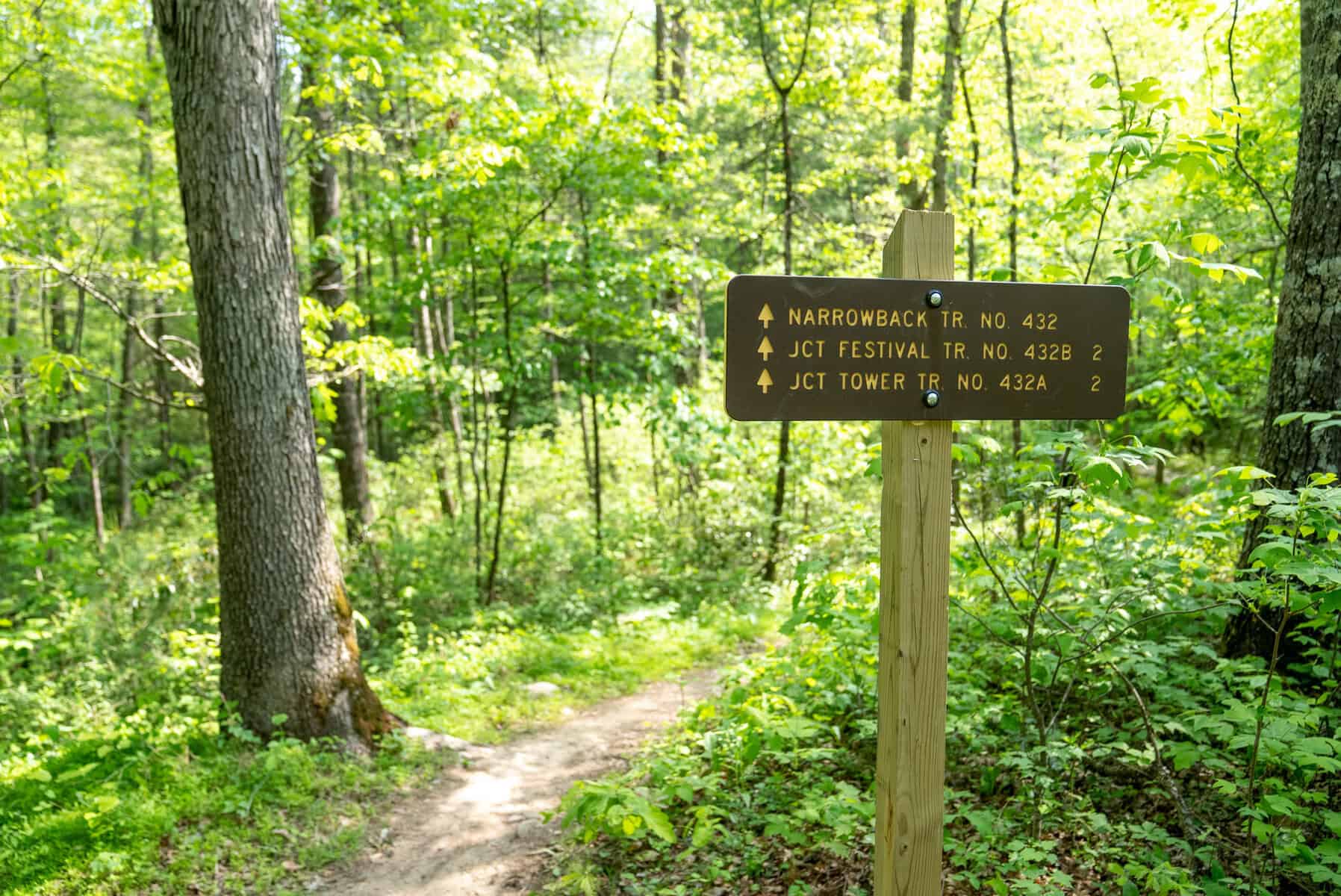
Some of my favorite memories have taken place on public land. Whether that be section hiking the Appalachian Trail through Shenandoah, trail running in the GWNF, bike packing the C&O Canal with friends, and most importantly, being a place to enjoy nature. I moved back to the Valley in 2020 and spent virtually every weekend in the GWNF running and hiking with my dog. Spring, summer, fall, and winter, it did not matter; I was going to be out there.
These shared experiences and love for our public lands have led to many of my friendships. These places have become my community, and my life is better because of them. If these lands are taken from us, what will happen to our outdoor recreation community? What will happen to the outdoor recreation economy that many towns up and down the valley depend on? Will the next generation get the same experience that we have? I hope we never have to know the answers to these questions.
Recently, the House of Representatives Natural Resources Committee passed its budget proposal that included an amendment that would sell half a million acres of public land. This amendment was added in the middle of the night, and the patrons of the bill, as well as the chairman of the committee, refused to explain or debate the amendment. What is a massive concern is how the people who want to see these lands sold are doing it via the budget reconciliation process, which lowers the threshold to a simple majority in the House of Representatives and 51 votes in the Senate.
This is unheard of when it comes to public land. The justification for the sale of land is to lower the national debt. Something that sounds great but does not always make sense when you dig deeper. Selling of the land is a one-time revenue generator, whereas managing the land for recreation, timber, cattle grazing, and extraction, when done at the appropriate fair market value, will generate substantially more money for many years.
How does this impact us in the Shenandoah Valley? The actions being taken at the federal level will impact all federal public land. Shenandoah National Park, Wilderness areas, and George Washington National Forest are the public lands that we in the community recreate on the most. We care for this land through recreation, conservation practices, hunting, fishing, and partnering with the Forest Service to improve the trails (Narrowback Bridge). Projects in the National Forest will grind to a halt, grants and other funding mechanisms will dry up, people in our community will be out of work for no fault of their own, and the already backlogged trail maintenance will grow even longer.
The ranger crew that saws up a tree that has blown down across the trail will not be there. The crews that conduct prescribed burns and the hotshot crews that have saved many acres from wildfires will not be there or will have to be playing catch-up. Would the Rockstar bike race (which starts in downtown Harrisonburg and ends in downtown Roanoke) be able to take place without access to public lands in the National Forest? Would the Grindstone trail race be able to run (starts and finishes at Natural Chimneys)? What happens to the Massanutten Mountain 100? Does the Appalachian Trail cease to exist?
Not only will our access to public lands be dramatically impacted, but the new focus on ramping up logging via the President’s executive order and HR 471 – The Fix Our Forests Act will compound this issue. These actions are counter to the multi-use mandate that exists on public lands. This multi-use mandate has worked well for a long while and has benefited public lands users, local economies, and industry. Logging harms water quality, primarily by causing increased soil erosion, which leads to sediment runoff into waterways, polluting water with dirt and debris.
The drinking water we get in the valley is stored in reservoirs in the George Washington National Forest. The Fix Our Forest Act is a great-sounding name, but this bill will not fix anything. This bill expedites National Environmental Policy Act (NEPA) review, limits the Endangered Species Act, and limits litigation. How does this benefit us? It seems like it was written to benefit private industry. The bill that needs to be passed is the bipartisan Public Land in Public Hands Act, which maintains public access to public land by banning the sale or transfer of most public lands managed by the Department of the Interior and U.S. Forest Service, except under specific conditions and where required under previous laws. The bill also requires Congressional approval for disposals of publicly accessible federal land tracts over 300 acres and public land tracts over five acres if accessible via a public waterway.
Underfunding, firing rangers, and letting our Parks and Forests become overgrown and unmanaged is all an effort to say it is too expensive to fix and we should just sell them and let the private sector deal with it. This has nothing to do with trying to save money; the National Forests and National Parks run a nearly $52 billion surplus each year. These agencies make up about 1/15th of the Federal government’s budget and only spend $4.3 billion out of the $6.75 trillion the rest of the government accounts for. In Virginia, outdoor recreation accounts for 1.9% of the Commonwealth’s GDP, contributes 122,405 jobs, and brought in $13.4 billion in 2023. Logging and extractive industries cannot even come close to making up the gap that would be left if our outdoor economy is kneecapped. Why are profitable agencies one of the first cuts the administration and Congress made?
In my opinion, we should be investing in the Park Service, the Forest Service, the Fish and Wildlife Service, and the other agencies that manage public land. The best place to start is charging the extraction industry the market royalty rate for using our public lands (The Hardrock mining industry pays $0 to mine our public land). Why are we giving away our oil, gas, timber, grazing, and minerals rights for pennies on the dollar with low bond and high primary term? How is that in the public interest?
If public land is sold, we will never get it back. We have seen this play run before; it is not new, and the American public, in tandem with outdoor recreationists, has beaten back efforts to take and sell our lands in the past, like in 2017, when Rep. Chaffetz introduced a bill to sell 3.3 million acres of public land. There was so much pushback on this bill that he withdrew it and left Congress completely. We will do this again.
This issue is daunting, but so are some sections of the trail we all run, hike, and ride. People in our community are used to powering through. We get to the top of the climb, wipe the sweat off, smile, and push forward. We cannot back down in defense of our public lands. We like type 2 fun, and this is exactly that.
Teddy Roosevelt who is one the best Conservationist this country has ever seen once said “Of all the questions which can come before this nation, short of the actual preservation of its existence in a great war, there is none which compares in importance with the great central task of leaving this land even a better land for our descendants than it is for us.”
I agree with TR.
Call your Senators and Members of Congress today and tell them you oppose the sale of public land.
